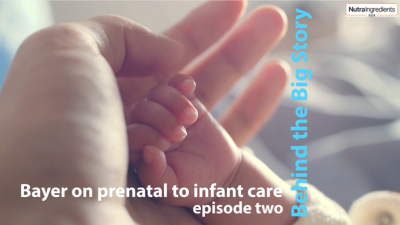ALA during pregnancy may stabilise maternal mental health – Japan trial

A global survey reveals that 10–20% of pregnant women, particularly primiparous individuals, experience postpartum depression. Japanese researchers conducted a study to assess the impact of omega-3 fatty acids on the mental health of primiparous women, aiming to address the higher susceptibility to mental health fluctuations during first-time childbirth and child-rearing.
While previous trials often investigated eicosapentaenoic acid (EPA) and docosahexaenoic acid (DHA), this study uniquely explored the role of α-linolenic acid (ALA) found in perilla oil and fish oil.
Healthy Japanese primiparas were recruited over 3.5 years (between November 2015 and April 2019) and divided into perilla oil and fish oil groups, consuming omega-3 fatty acids for 12 weeks.
Their mental health was assessed using the Edinburgh Postnatal Depression Scale (EPDS) and Mother-to-Infant Bonding Scale (MIBS). Fatty acid composition in blood, cord blood, and colostrum was analysed. A case-control study assessed the association between maternal fatty acids and EPDS scores.
The perilla oil group exhibited a significantly lower proportion of high EPDS scores (≥9) compared to the control, indicating potential benefits in stabilising postpartum mental health. No marked effect was observed in the fish oil group.
It is important to note that differences in ALA metabolism likely played a role in the perilla oil group's positive effects. Maternal DHA, crucial for fetal development, is preferentially distributed to the fetus during pregnancy. Cord blood analysis showed high levels of EPA, DHA, and docosapentaenoic acid n-3 in the fish oil group, suggesting their supply to the fetus.
However, DHA levels in the perilla oil group were significantly lower. This suggests that DHA synthesised from ALA may have accumulated in the maternal brain rather than being supplied to the fetus. The omega-3 index of erythrocytes indicated DHA deficiency in participants.
A 10-year follow-up study in middle-aged and older women further highlighted an inverse correlation between depression risk and ALA intake, especially in those with low linoleic acid intake.
This suggests that the study's results might signify a reduction in general anxiety related to childbirth and child-rearing rather than a mental health issue. Future research, including a more detailed assessment of anxiety, is essential, using tools such as the State–Trait Anxiety Inventory and the Manifest Anxiety Scale.
Given the global decline in omega-3 fatty acid intake, the study, conducted in Japan, where seafood consumption has decreased, raises concerns. While fish oil showed no direct effect on maternal mental health, it was observed that changes in fatty acid compositions suggest potential benefits for newborns.
Adequate supplementation of EPA and DHA in early pregnancy has been linked to reduced preterm birth risks, and further analysis is needed to understand the impact on newborn growth and development.
The interventional study also lacked a placebo control due to humanitarian considerations, and additional anxiety assessments were not included alongside EPDS. Socio-economic status remained unassessed, and the omega-3 fatty acid content in consumed oils lacked precise adjustment. The focus on blood fatty acids alone may not fully capture changes in the brain.
The study's results might also be region-specific, particularly given Japan's generally higher omega-3 fatty acid intake than in other countries.
Source: Nutrients
Effects of Varied Omega-3 Fatty Acid Supplementation on Postpartum Mental Health and the Association between Prenatal Erythrocyte Omega-3 Fatty Acid Levels and Postpartum Mental Health
DOI: 10.3390/nu15204388
Authors: Harauma A, Yoshihara H, Hoshi Y, Hamazaki K, Moriguchi T











